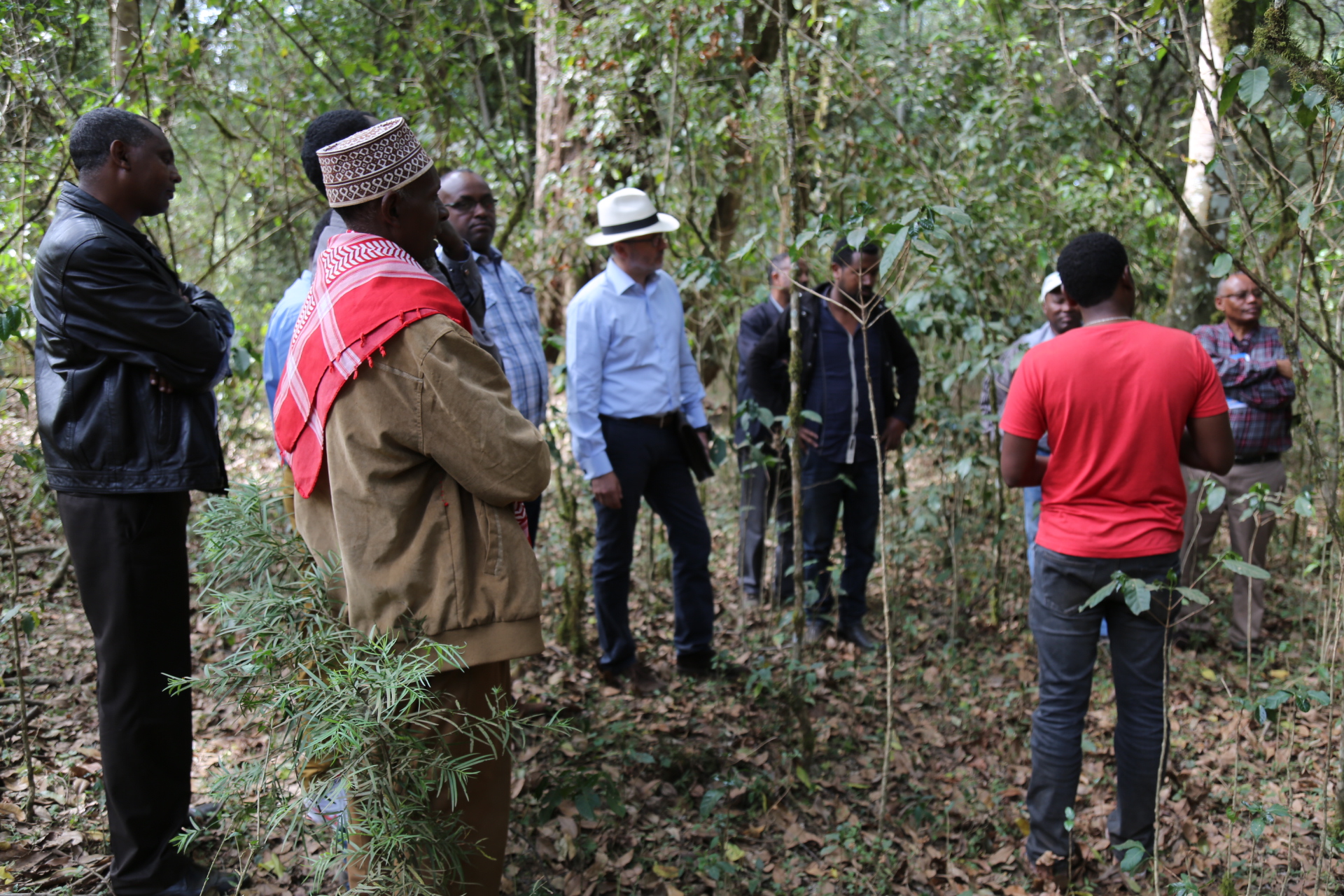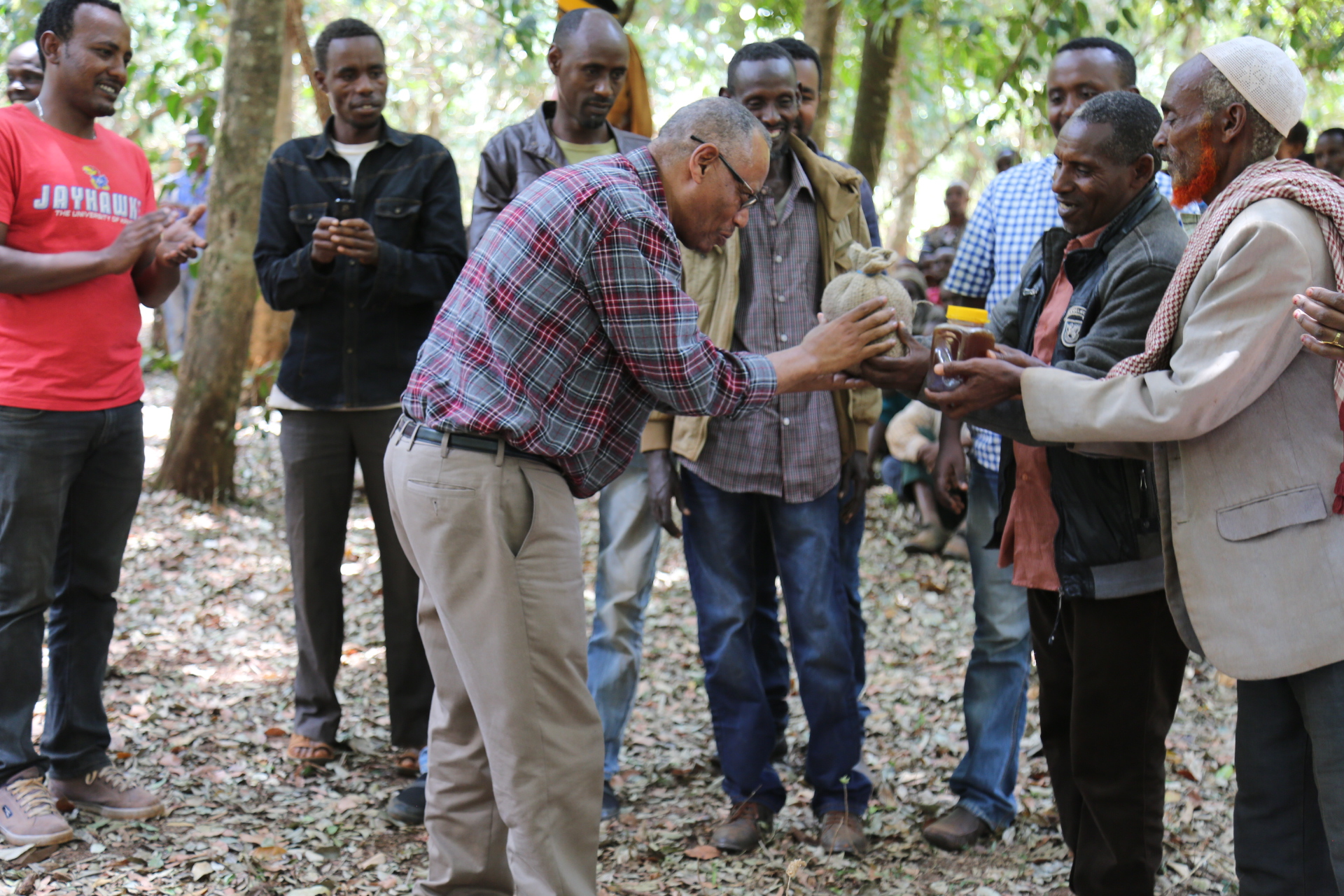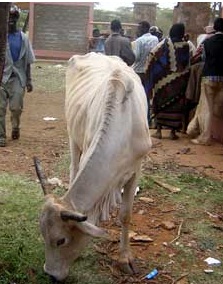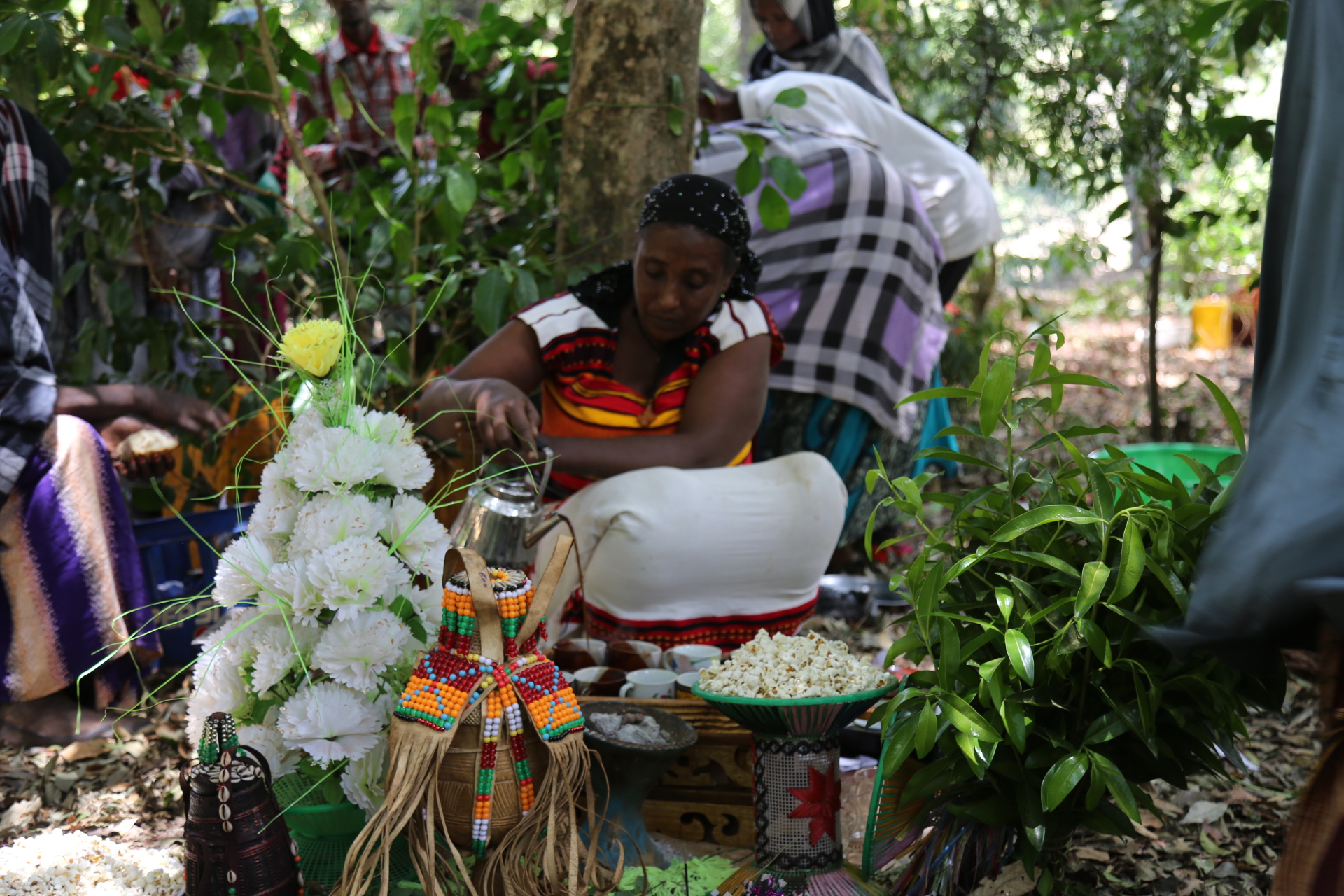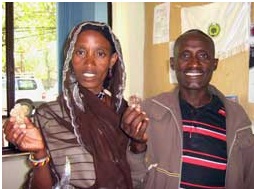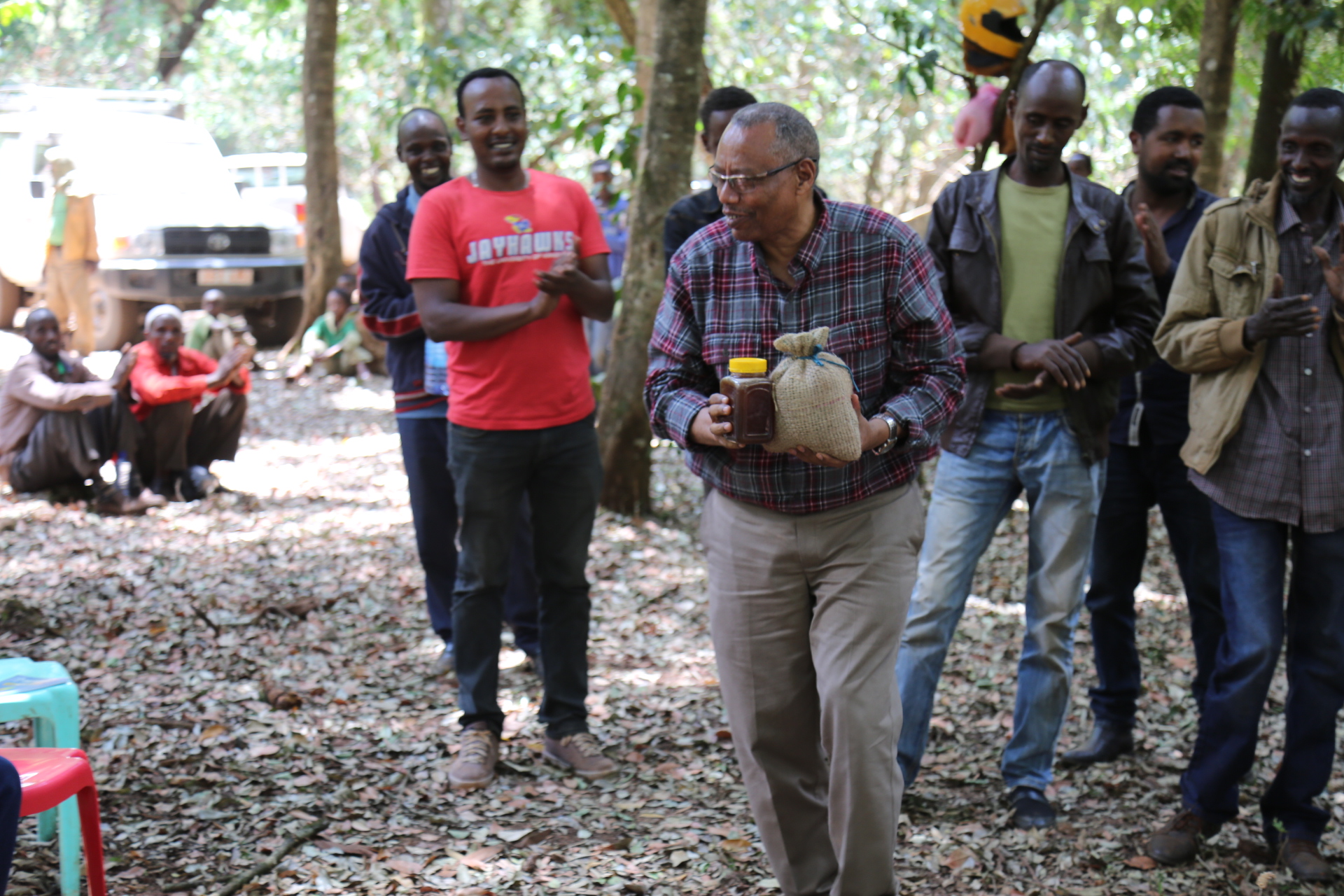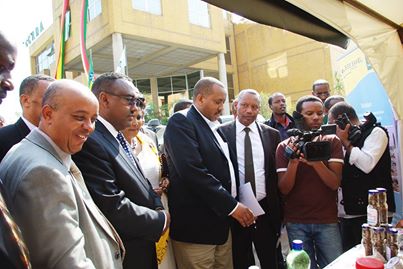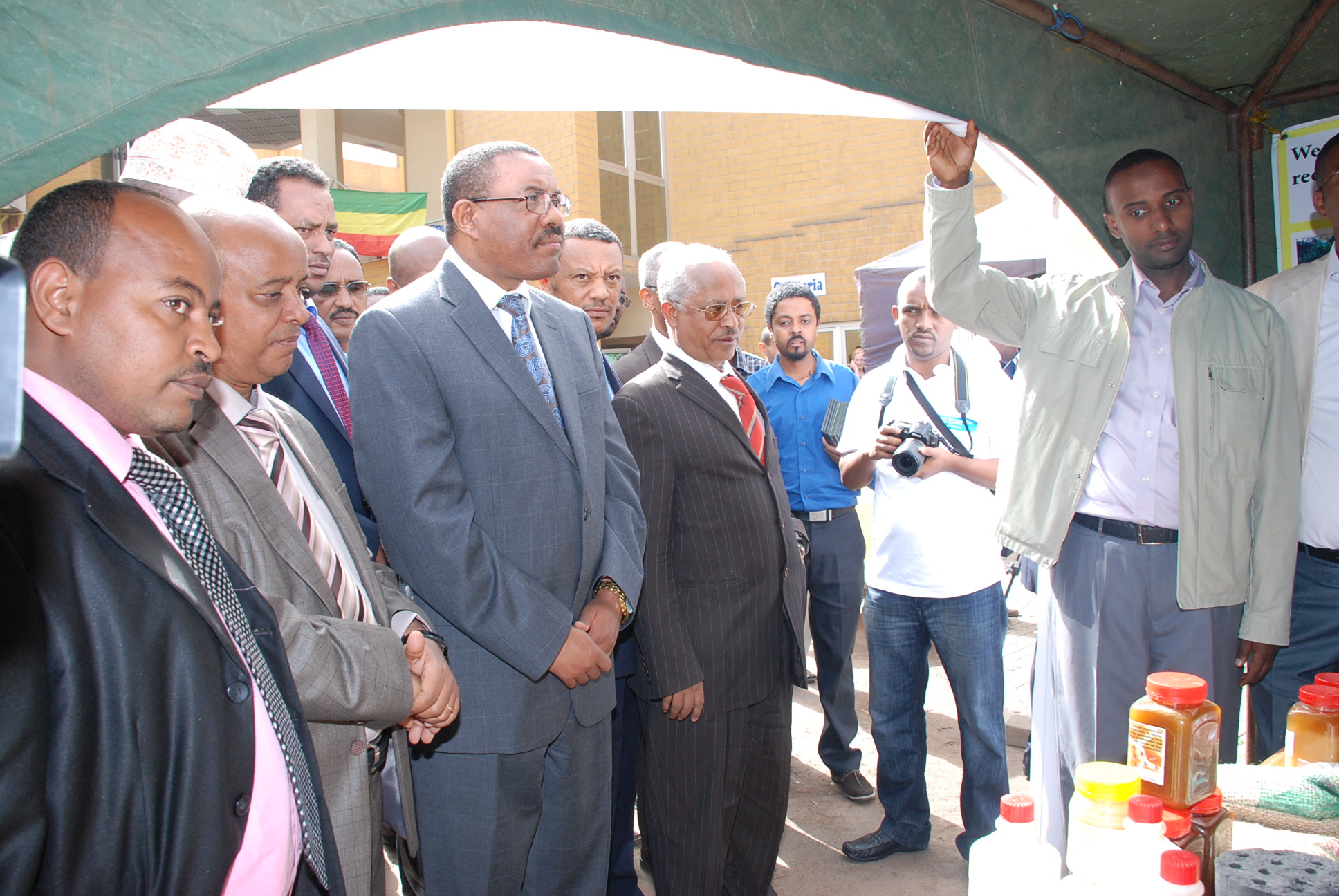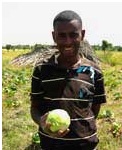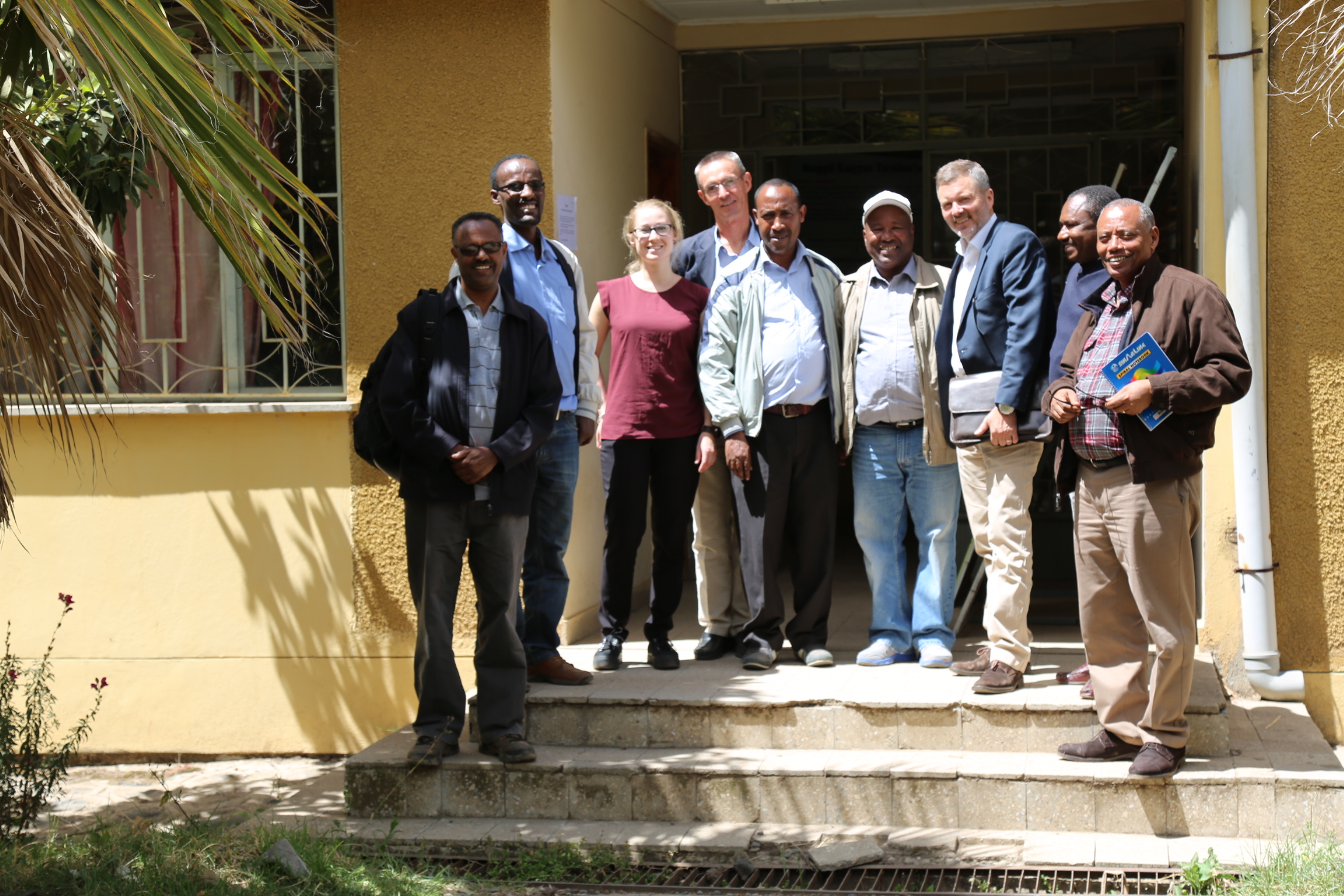current projects
Current projects
1)Women Empowerment Through Food Security Project.
2)Livelihoods Enhancement for Rular Landless Youth and Enviromental Protectioin in Lake Hawasa Catchments Program(CSSP).
3)Secured Access and Sustainable Land Management Project.
4)Loka Abaya agro Forestry Based Livelihood Improvement and Climate Change Adaptation Pilot Project.
5)Pilotting REDD+ in the Bale Eco-Regional level Institutional Capacity for Natural Resource Governance.
6)Capacity Building and Improving Governance Of Herders Organizations Project
7)Towards Resilence and Diversify Economy Project.
8)Loka Abaya Degraded Community Water Rehabilitation and Forest Restoration Project.
9)Engendering Social Accountability Project(ESAP2).
10)Pastoralist Area Resilence Improvement and Market Expansion(PRIME)Project.
11)Supporting Resilience in Emergency-Prone Areas of Borena Zone,Oromia Region,Ethiopia.
12)Conservation of Biodiversity and Ecosystems functions and Improved Well-being of Highland and Lowland Communities within Bale Eco-region Project.
13)Buiilding Resilience and Adaptation to Climate Extremes and Disaster(BRACED)Project.
14)Improving Smallholder Livelihoods and Resilience in the SNNP Regional State Through Climate Smart Agricultural Economic Development Cluster I
15)Improving Smallholder Livelihoods and Resilience in the SNNP Regional State Through Climate Smart Agricultural Economic Development Cluster IV
Women Empowerment through Food Security Project
Women Empowerment through Food Security Project (WE-RISE)
Women Empowerment through Food Security project was designed with the overall objective to contribute to improving food security and women’sempowerment in Sidama Zone of SNNPR, Ethiopia. Towards this major objective the specific objective is, toreduce food insecurity and increase income and resilience for chronically food insecure rural women and vulnerable groups. Chronically Food Insecure Rural Women (CFIRW) are the expected results that the project is intended to achieve by the end the project. With this respect, for the last two and half years the project has implemented and accomplished number of activities that lead towards, the above mentioned objective. Accordingly this report covers the performance of the project for the last one year (January 2014-December 2014).
Stories of Change Women Empowerment through Food Security (WE-RISE) Project Stories of Change, These stories are samples highlighting the many positive changes occurring at the community level as a result of project interventions during the past four years. Though the document has touched upon many components of the project, it only gives you a glimpse of changes that we have witnessed in the lives of the participant households. While all participants have not reaped the same successes, these stories show what is possible when the WE-RISE model is fully applied and accepted. All the positive changes are made possible through the hard work and collaboration among CARE Ethiopia, CARE Australia, SOS Sahel Ethiopia, relevant government offices, and all project participants.One of the successful women in shoat credit scheme,opportunity to congratulate everyone who contributed in one way or another to the successes illustrated in these moving stories from our community members.Photo: Worku Chibssa, Food Security Program Manager, CARE Ethiopia Stories of Change, WE-RISE Project at a Glance CARE’s Women’s Empowerment through Improved Resilience, Income and Food Security (WE-RISE) is a five year (July 2011-June2016) partnership initiative between CARE Australia, CARE Ethiopia and SOS Sahel Ethiopia. The target areas for the intervention are 24 kebeles1 located in Dale, Loka Abaya and Shebedino Woredas2 in the Sidama Zone of Southern Nations, Nationalities and People’s Region (SNNPR). The project is funded by the Australian government, Department of Foreign Affairs and Trade (DFAT). The total project budget is 2.472million Australian dollars (about 37 million birr). The overall objective of the project is to contribute to improving food security, gender equity and women’s empowerment in Sidama Zone of SNNPR, Ethiopia. The project has been working with men, women, boys and girls in the target communities to achieve the following four expected outcomes: • Chronically food insecure rural women (CFIRW) and vulnerable households have increased productive assets and resources and control over these. • Cultural and social norms and attitudes better support the individual & collective aspirations and improve opportunities for chronically food insecure rural women. • Formal and informal local-level institutions are more responsive to women’s priorities and accountable to upholding their claims & interests. • Vulnerable households, particularly women, are more resilient to climate crisis and other external shocks. The project targets a total of 15,441 households in Dale, Loka Abaya and Shebedino woredas (districts). These are the districts with the highest number of chronically food insecure households in the Sidama Zone. Out of the total, 9,332 households are chronically food insecure and registered as beneficiaries of the government’s Safety Net Program (PSNP); and 36% of them are female headed households. The remaining 6,109 households are those not targeted in the PSNP. The project addresses the problem based on the CARE’s well researched Theory of Change (ToC) for the core programs-CFIRW. ToC focuses on Women’s Agency (skills and aspirations), formal and informal structures and the social relations. The strategy includes creation and protection of productive household assets (wealth) through on-farm and off-farm business enterprises such as bee keeping, poultry, sheep, and goat rearing. There are activities which only target women to improve their income. These includes activities such as poultry, goat and sheep in kind credit, and tailored trainings in financial and management skills. Besides the project address the formal and informal institutions to support and respond to women needs and priorities though various capacity building and discussions forums. Further the project has also employed accountability tools and engage the community though Social Analysis and Action (SAA) to challenge and current norms and behaviors that impede the development of CFIRW. WE-RISE works in close partnership with all relevant government partners and reviews the project progress from time to time in order to improve the outcomes. Stories of Change, 1Kebele is the smallest administrative unit of Ethiopia similar to ward a neighborhood or localized and delimited group of people. 2Woreda is an administrative unit in Ethiopia similar to district. Photo: a household which is a member of Atote Livestock Fattening and Forage Development Association at Salasire Kebele, Loka Abaya Woreda. (full story on page 6) Stories of Change, WE-RISE Project Page 6 of 16 neys for ultra-poor women in the area so that they can earn income and improve family nutrition. Wagaye first received 50 day-old chicks with feed and vaccines, as direct support from the project. After three months, she got 3,000 birr (150 USD) income from the sale of the chickens. The project gave her similar support in subsequent rounds until she was able to pay all the costs herself. She said “using the new income, I expanded my butter trade, bought 10 goats and a heifer. My children now eat properly and attend school. I even bought a TV set and opened a barber shop which is managed by my eldest son. I also resumed my education at the weekends and reached at college level at present. I believe women have the capacity to change their family’s livelihood for the better.” Wagaye accumulated assets are estimated to be worth 20,000 birr. She has 2,000 birr cash saving in her VSLA and RuSACCO. She is keen to further expand her poultry production. So far, Wagaye and the 34 other women entrepreneurs have been able to supply 8,680 chickens to 994 ultra-poor households with an average net profit of 4,960 birr in one production season. 1 birr=0.05 USD Household’s livelihood back on track Extreme poverty had forced Wagaye Feta to give away her youngest child for adoption. Wagaye, a 30 yearold mother of four, is a resident in Semenmesekila kebele, Dale Woreda of Sidama Zone. Life had been full of challenges for her following the death of her husband nine years ago. She did not have the means to feed her children, all of whom were below the age of eight. Her husband earnt a decent income from selling timber and, during the first year after his death, she had savings left to meet the basic necessities of the family. Afterwards, she was forced to sell her furniture and utensils and quit her adult education. Engaging in a small business was unthinkable as she did not have the money, skills, and someone to take care of her children. With lots of suffering and tears, she had to give up the youngest child for adoption. After that, she was able to earn some income from trading butter and also started to get support from government’s safety net program. But the real difference in the family’s livelihood came due to her participation in the WE-RISE Project. Wagaye was one of 35 women trained by the project on poultry management which includes feeding, housing, hygiene and marketing. This component of the project has two objectives. On the one hand it helps women like Wagaye to be poultry entrepreneurs. On the other hand, it improves the availability of pullets and cock- Stories of Change, WE-RISE Project Page 6 of 16 “Women have the capacity to change their family’s livelihood for the better.” Photo: Wagaye feeding chicken & goats Stories of Change, WE-RISE Project Page 7 of 16 Helen Keller, the well-known American author, political activist, and lecturer, said “Alone we can do so little, together we can do so much.” This saying perfectly fits the Atote Livestock Fattening and Forage Development Association, established with the WE-RISE support by seven hard-working women in Salasire Kebele, Loka Abaya Woreda of Sidama Zone. Food security had been a challenge for all of them for many years. Their family income has traditionally depended on subsistence farming. When the WE-RISE started implementation in the woreda, the women organized themselves to engage in various IGAs. In consultation with the project and local administration, the women chose to engage in forage development. The administration provided them with 0.25 hectares of communal land to grow forage. At the same time, the project gave training on livestock and forage production, as well as facilitating market linkages for them. From the first round of forage development, the group made a profit of 14,215 birr. “When we started planting the forage plant (grass), some people were laughing at us. But when we got the first income, we got lots of respect and motivation”, reported Ayane Feyesa, the 40 year-old chairperson of the group. The new income has also motivated their husbands to join the business and expand it further. In the second year, the group gained 13,200 birr from the sale of forage. After that, the group started diversifying their sources of income further. They bought three calves for fattening at a cost of 7,500 birr. However, they resold them after three months without getting any profit. Looking at the gap, the project provided them training on fattening. Learning from their first failure, they earned 2,400 birr profit from the sale of three oxen in the next round. Then they bought three bull-calves for fattening from which they made 3,500 birr profit. The group also engaged in poultry production and made 5,500 birr profit after investing 6,600 birr on day old chicks. The group has legalized their association and linked with Sidama Micro Finance Institution. They borrowed 27,000 birr from the MFI to expand the fattening business. Moreover, each group member multiplies forage seedlings in their backyard and secure good income. Members speak of the benefits of working in a group and the role of the women in the group. “The women played a great role in making the association strong and they are the reason for improving their livelihood and the neighborhood. We gained skills in fattening, IGAs, credit and saving. We help each other and saved 29,200 birr as a group. And we expect 15,000 birr from the sale of shoats and heifers.” Samuel Sinuka, one of the members said. “Before the intervention of the project, I did not value my wife very much. I never thought she could generate income like this. Now we support each other in household chores and I respect her rights.” Bedeso Wachemo, another member said. The association is led by five committee members of which three of them are female including the chairperson. The members save 10 birr per month in their VSLA. Women united to ensure food security “The women are the reason for improving their livelihood and the neighborhood.” Photo: The seven women who founded the Atote Livestock Fattening and Forage Development Association of Change, WE-RISE Project Page 8 of 16 “Even I can do better” It is very challenging to live in extreme poverty coupled with a physical disability. This has been a reality for Tekalegn Abreham, a 16 year-old boy who lives in Galikohirye kebele, Shebedino Woreda of Sidama Zone. He lost his father when he was young. His mother had always struggled to feed and take care of eight other children. Tekalegne, the youngest in the family, was a healthy boy until he fell from tree while he was playing with his friends. He was five at the time. The accident claimed both of his legs despite medical treatment. Following the accident, his family preferred to keep him at home. “I was crying everyday as I could not play and go to school”, he said. Three years after the accident, he joined a nearby government school. However, getting enough support from the family had become difficult as they are very poor. This forced Tekalege to be a shoeshine boy in a nearby town while attending his school for half a day. Some relatives in the town gave him shelter. In the meantime, WE-RISE in consultation with the local administration selected Tekalegn as a project participant in 2014. The project provided him training on income generating activities and facilitated access to credit. He took a 1,000 birr loan to open a small shop on the side of the main road where he does the shoe shining business. “I have an average daily sale of 80 birr and get 20 birr net profit per day from the shop. I also charge mobile phones for people, from which I make 10 birr income per day.” Furthermore, he recently started saving 40 birr per month between a VSLA and a RuSACCO. Currently, Tekalegn is attending Grade Nine. He performs well at school and gets good moral support from teachers and classmates. He has been able to buy reference books owing to the better income, and has an electric light to study with at home. “I want to increase the variety of items in my shop through securing a loan when my saving is good enough. Now neighbors respect me a lot. I know that I even can do better. The biggest challenge for me now is paying 20 birr for a motor bike transport service every day to travel to school as the secondary school is located about five kilometer away from home. I want to be medical doctor in the future.” The WE-RISE project has been supporting 78 people (44 male, 34 female) with disabilities. The major interventions of the project in this component are provision of training on life skills and income generating activities in collaboration with Handicap National. The project also facilitated access to credit for each beneficiary. Stories of Change, WE-RISE Project Page 8 of 16 “I want to increase the variety of items in my shop through securing a loan when my saving is good enough. Now neighbors respect me a lot. I know that I even can do better. Family reaps from viable livelihood Habtamu Gedo, a 30 year-old father of five, and his wife, Bezunesh Tetamo, a 25 year-old, never thought their livelihood could be changed for the better within a few years. They live in Sodosimata Kebele, Loka Abaya Woreda of Sidama Zone. Life had been very challenging for them as they only had 144m2 of land which was inadequate for supplying enough food for the family. As a result, Habtamu worked on neighbors’ farmland with a crop share out agreement. Similarly, his wife had to work for people in the area often doing the tedious work of preparing kocho (Staple food in southern Ethiopia) from the enset plant. She also engaged in selling maize flour in local markets. Despite all their struggles, the household remained far from achieving food security and was forced to depend on the government’s safety net program for six months per year. Habtamu’s household was targeted by the WE-RISE project to get support for irrigation. “The project invited us to discuss about different livelihood options. Considering the small river that crosses our village, my wife and I opted for getting support for irrigation.” he said. The project provided 61 water pumps to 492 households (339 female, and 153 male) in three woredas with 50% of the cost shared by the groups of households organized in the scheme. Habtamu’s household joined two others to contribute 3,000 birr for the procurement of the water pump. They also received training on how to use the water pump to grow vegetables and get better income. “As part of the irrigation scheme, my family leased 0.75 hectares of land from a neighbor. We were able to produce tomatoes three times per year. In the first year, 2012, we made a net profit of 3,000 birr; and in the following two years, my family made a total net profit of 22,000 birr.” Habtamu and his group have also been renting out the water pump to 10 other households in the surrounding area from which they earn 15,000 birr per year. Habtamu’s household has also earned income from the sale of vegetables, including red pepper. His wife has also expanded maize flour mini trade from which she gets an average monthly income of 400 birr. The income helped Habtamu’s family to become self-sufficient in food, buy another water pump for their own use, and acquire seven cows, four goats, and a donkey cart. “I believe we can earn about 50,000 birr per year from the irrigation scheme.” he concluded. “As part of the irrigation scheme, my family leased 0.75 hectares of land from a neighbor. We were able to produce tomatoes three times per year.16 Social Analysis and Action (SAA) is an approach that challenges and tries to bring about change in underlying cultural and social norms that hinder gender equality and women’s empowerment. SAA uses critical dialogue and group analysis to bring about actions for social change within the community. SAA seeks to improve the relationship of women within their households as well as at the community level through conducting regular dialogue using influential community elders, religious leaders, government officials, women, and men, and others. The WE-RISE project is leading SAA in 26 kebeles (local administration) of the Sidama Zone. Each SAA has about 52 members. The core SAA groups started by challenging their own attitudes before involving the wider community in discussions. They questioned themselves regarding gender inequality issues such as the burden on women of household chores, exclusive decision-making of men, and the fact that only men can inherit land, among others. The SAA has been instrumental in changing the attitudes and practices of the community on several issues. The case of Kebebush Kembata, an 18 year-old woman living in Debubemesekila Keble of Dale Woreda, who was recently allowed to inherit land from her parents, is a good example of the impact that SAA is bringing. In Sidama culture, only male children inherit land. Even when parents have only female children, they will instead pass the land to male family members such as a brother or uncle. The attitude of many men in the area was, “Why is land important for women? Soap and lotion are enough for them”. Kanbata Gonsamo, Kebebush’s father, deviated from the traditional attitude by passing 0.25 hectares of land to his daughter despite negative opinions from many in the community. “My participation in the SAA sped up my decision to have my youngest daughter inherit my land. Previously, I only gave land to my male children after they established their own families.” The young and energetic Kebebush planted sweet potato on the land together with her husband. They now have a baby boy and hope the land will help them to have a better future. According to Gezahegen Mukura, chairperson for Debubmesenkila kebele, SAA has brought lots of results in changing attitudes and practices of participants on division of labor, power relations and decision-making, access to and control over resources among men and women, as well as discouraging harmful traditional practices and gender-based violence. More than 1,300 people have participated in WE-RISE SAA meetings, which are usually held every month. The project has also started SAA discussions in 260 VSLA groups. SAA empowers women Page 10 of 16 Photo: Kebebush with her father, mother and & her child. Photo:participants of SAA Stories of Change, WE-RISE Project Page 11 of 16 Aloe vera soap production: a viable IGA for rural poor Engaging rural poor households in income generating activities is a challenge for many reasons. Creating or adopting business ideas, ensuring sustainable input supply, and creating market linkages are some of the biggest challenges. Some 17 poor households (12 females, 5 males) who live in Tulagorbe Kebele, Loka Abaya Woreda of Sidama Zone were unable to overcome the challenges. However, the 17 organized themselves in a group and grabbed the opportunity when WE-RISE intervened in their woreda. They formed an enterprise called Genet Aloe Vera Soap Production Association after the project facilitated training and experience sharing visit to Borena where SOS Sahel helped rural poor to engage in Aloe Vera soap production.{} In addition to the training and experience sharing visit, the Loka Abaya Woreda provided them with a production center and land on which the group planted aloe vera. The Woreda has favorable climate for growing the plant. With the new skills they acquired, the group planted aloe vera on 0.5 hectares of land provided to them by the local government, behind their small factory. Priority to this, the group collected aloe vera leaves from the wild for soap production. The aloe vera plant produces sap from its leaves, which is an essential ingredient for the soap production. Caustic soda water, edible oil, aloe vera oil and perfume are the ingredients in the soap they produce. Plastic molds are also essential to give shape for the soap. In six months, the association earned an income of 16,000 birr revenue after producing nearly 1,937 bars of soaps. The group sell the soap for 11 birr. Naomi Berhanu, Project Team Leader & Research Adviser with SOS Sahel Ethiopia, reported that, “The net profit from each soap is four birr. So far, members only spend two hours per day working as there is currently a shortage of molds and raw materials. In each two-hour production cycle they can produce 56 soap from which they get net profit of 224 birr.”. On the other hand, Meskerem Melese, chairperson of Genet Aloe Vera soap producers association said, “The association will start share out of the profit to members in a year time. If we get more molds, our income will increase a lot as the demand is high even at local market.” Consumers of the soap shared that the soap is very nice, makes the skin smooth, and is sold at a reasonable price. This IGA has great potential to improve the livelihood of the members and even attract others if they get the support and raw materials they need. “If we get more molds, our income will increase a lot as the demand is high even at local market. How a Paralegal rescued girls from FGM Aregash Abera, aged 12, and four of her friends live in Telamo Kebele, Shebedino Woreda of Sidama Zone. All of them are students at Telamo Kiniste Primary School. Six months ago, they made a secret decision to go to a woman who engaged in Female Genital Mutilation (FGM). The girls reached this decision as there is a tradition in Sidama Zone for girls to undergo genital cutting before they get married. The girls heard that unless they undergo circumcision before they get married, the parents-in-law will do forced genital cutting on the bride right on wedding day, which is very demeaning for the girls. Though there has been progress in the fight against Gender-Based Violence (GBV) in the area, there are still some cases happening in the community such as, polygamy, FGM, rape, abduction, etc. Fighting GBV has been one of the interventions of WE-RISE through facilitating establishment of paralegal groups including both male and female members. Each paralegal group has five committee members and works in partnership with government offices such as Women, Children, and Youth Affairs and the Justice Office, religious institutions, elders and Social Analysis and Action (SAA) core groups. The councils are creating awareness regarding the negative consequences of GBV on girls, women, family and the community as a whole. They also receive reports from the community on various GBV cases, and act quickly and appropriately in collaboration with relevant line offices. The council received information about Aregash and her friends’ plan to undergo genital mutilation from someone from their school. Immediately, the committee members approached the girls. They gave awareness orientation on the negative consequences of FGM. Convinced by the advice, the girls not only cancelled their plan, they also established an anti-FGM club at their school in which more than 20 girls actively participate to raise awareness of students on the issue. “We were with the wrong perception when we decided to go to genital cutting. We did not even consult our parents or teachers”, Aregash said. “We were with the wrong perception when we decided to go to genital cutting. We did not even consult our parents or teachers” A total of 314 people (210 women and 104 men) are working voluntarily as paralegal group members. They are champions for fighting gender based violence within their communities. The project supports them through providing training and materials. Photo: Aregash Abera & her four friends Photo: a paralegal group which saved the girls from FGM Stories of Change, WE-RISE Project Page 13 of 16 “We get meals regularly” “I am very happy for having sheep and a heifer. I had never thought I would have these assets in such a short period of time.” said Mulu Hariso, a 38 year-old widow and mother of four, describing how WE-RISE helped her improve her livelihood. Mulu lives in Sodosimita Kebele, Loka Abaya Woreda of Sidama Zone. Life was very hard for her family, especially after she lost her husband. The family only secured three quintals of maize from their small plot of land, which was share cropped by another family, as Mulu did not have someone to help her with farming. “My children could not get meals regularly. It was a luxury to have three meals per day. They also withdrew from school due to the extreme poverty”, she said. The intervention of WE-RISE by providing in-kind sheep credit four years ago has helped Mulu to improve the family livelihood and asset base. The project gave her two ewes which produced two lambs in a month’s time and, another two lambs in the second round. She also received training on sheep and goat rearing, forage management, and credit and saving mobilization. After transferring two six months old sheep to another beneficiary in the waiting list, she sold two sheep for 800 birr. “Adding 400 birr I got from VSLA share-out to the money I obtained from the sale of sheep, I bought a heifer. I make a profit of 50 birr per week from maize flour trade I started with initial capital of 200 birr borrowed from my VSLA.” Mulu said, “My family is in a much better position after I began participation in the project. We get meals regularly. I planted more enset (a staple food in southern Ethiopia) in my backyard. I save about 40 birr per month at the VSLA. My children go to school regularly. I believe the education will help them to have a better future. Now, my neighbors gave me more respect as I’ve better income and I can contribute money for social affairs.” One of the objectives of the project is creation and protection of productive household assets through on-farm and off-farm business enterprises such as beekeeping, poultry, sheep and goat rearing, etc. The project has so far supported 1,221 women with sheep & goat inkind credit scheme in Dale, Loka Abaya and Shebedino woredas to build their assets so that they become more resilient to climate crisis and other external shocks. So far, 675 women have settled their debt by transferring one or two shoats to other women on the waiting list. “My family is in a much better position after I began participation in the project. We get meals regularly.” Mulu Hariso, one of the successful women in shoat credit scheme Stories of Change,16 Beekeeping in Sidama Zone has been largely done using traditional hives, which cannot produce enough honey for consumption let alone for income generation. That is why the WE-RISE project has made the sector one of its priorities for helping rural poor households improve their livelihood through promoting transitional beehives (TBH). The project introduced TBHs to 1,000 households (826 female, 174 male) in Loka Abaya, Dale, and Shebedino woredas, and provided training on colony transfer, multiplication of the queen bees, and overall beekeeping management. Gelana Gedena, a 32 year-old father of five children, is one of those who successfully changed the training lessons into action. Gelana and his wife Asnakech Assefa live in Tula Gorebe Kebele, Loke Abaya Woreda. They were working hard to ensure the food security of their family and to educate their children properly. But they had to be supported by government’s safety net program for six months per year as the agricultural production from their half hectare of land was not enough to feed the family. Their participation in the project over the past four years motivated the family to seek a better life. Following their success in other aspects of the project, the couple decided to try generating income from beekeeping. Earlier, they had two traditional beehives from which they harvested only 10 Kg of honey per year. After Gelana attended training facilitated by the project, the household started to install TBHs. And currently, they have 20 TBHs of which 15 of them have bees. Gelana said, “Last year we secured 6,000 birr after selling 120 Kg of honey harvested from 15 active hives. My wife and I never thought it would be possible to fetch such an amount of money from beekeeping.” Gelana is skillful in constructing and modifying TBHs. His wife is also actively participating in the whole process of honey production. The family has a plan to increase the number of hives to 40 in the near future. They started selling the honey to a cooperative established by the project to filter and pack, honey for supplying to markets. The income they are earning from honey and other components of the project has helped the family to gain food security, buy six shoats and two cows. They also constructed a shop in town and now can send their children to a better school. They also helped three households to construct TBHs using wood. “Currently, we get at least 20,000 birr annual income from various activities facilitated by the project. This income helped us to negotiate fair prices when we sell honey, chicken, and forage seedlings. We do not need project support any more as it has already helped us to gain good skills to manage our lives”, Asnakech said. Exemplary household in applying TBH “Last year we secured 6,000 birr after selling 120 Kg of honey. I and my wife had never thought it is possible to fetch such amount of money from bee-keeping.”CARE Ethiopia Head Office Tel: +251-116-627863 or +251-116-183294 Fax: +251-116-183295 P.O.box: 4710, Addis Ababa SOS Sahel Ethiopia Head Office Tel: +251-114-160391 Fax: +251-114-160288 P.O.box: 4710, Addis Ababa Email: This email address is being protected from spambots. You need JavaScript enabled to view it. www.sossahelethiopia.org
Completed projects
.1.Bale Eco-Region Sustainable Management Programme (BERSMP)
A joint venture of FARM-Africa and SOS Sahel Ethiopia, the BERSMP brings several Bale Massif communities into a central role in sustainably managing their region's unique biodiversity and ecology. The project also enhances the social and economic well-being of various communities dependent on the Bale Massif's natural resources.
BERSMP activities began in 2006 and cover an area of approximately 22,000 Km2.This project will phase-out at the end of 2011 and, by this time, local institutions and key relevant offices will have the capacity to sustain the results of the program in the long-term.
The BERSMP is currently providing training courses to local officials inParticipatory Forest Management (PFM), Geographic Information Systems (GIS), business skills, carbon trading, and eco-region planning. It has also established the BaleWild natural products brand, and developing and promoting Trout Sport Fishing as well as sustainable trout fish farming.Furthermore, the BERSMP is fighting climate change by promoting the introduction of improved fuel-saving stoves.
The project is organizing community-to-community exchanges and is currently providing internship opportunities to 22 young women who, while continuing their studies, will gradually see an increase in their programme implementation role.
The BERSMP is funded by:
2.Building Resilient Pastoralist Communities (BRPC)
The Building Resilient Pastoralist Communities (BRPC) works to build the resilience of pastoralists in the Borana Zone by improving access to inputs, services and output markets. The Borana Zone of south Ethiopia is home to a huge livestock resource; however, poor productivity and limited access to fair markets are obstacles to the income and food security of this region's vast pastoralist population.
The main objectives of the project are:
- Increasing the production and marketing of livestock and livestock products
- Empower asset-poor community members to diversity their livelihoods, and generate more income.
Since beginning in January 2010, the BRPC project enabled the construction of four milk collection centers, which are now linked to credit services. A stakeholder dairy product promotion forum was organized, while dairy cooperatives were given training to strengthen their capacity and to establish well-functioning structures in order to compete in national and global markets.
Over the project's life-time, other innovative activities were implemented inorder to reach the BRPC's agenda, such as:
- the conduct of abaseline survey of the target communities
- the establishment of communal grazing reserves and the provision of fodder seeds in various communities
- the promotion of crop residue as an alternative source of feed during drought seasons
- the rehabilitation of four traditional water sources
- the provision of rangeland management training for members of dairy cooperatives
The BRPC has also raised community awareness on the benefits of sustainable harvesting and production of selected natural products, organized natural product harvesters into business cooperatives, and facilitated their legal certification.
The BRPC is funded by:
Trocaire
The seriousness of the present drought in Borana has made the Disaster Risk Reduction II (DDR II) a critical project aimed at saving human and animal life. This emergency project, which launched in March 2010, is currently increasing the access to safe drinking water for a minimum of 12,444 houseolds (74,664 men, women and children) and is protecting the livestock of approximately 2,400 households through targeted emergency livestock protection programs.
Basic food and non-food items are being distributed to approximately 5,600 households (33,600 men, women and children) through the implementation of cash-for-work schemes to construct water infrastructure, reduce soil erosion and rehabilitate livestock pastures.
The targeted communities are involved in each stage of the project cycle and the resident Pastoralists Associations (PAs) are being strengthened in order to effectively manage water supplies during and after the project's life.
The DDR II is funded by:
3.Ensuring smallholder producers in Ethiopia achieve sustainable and fair access to pepper and bee product markets project
The project is developed to directly benefit 1,200 beekeepers and 1,600 pepper-growing households in the Jabitehnan, Dangila, Lay Armachiho and Dembia woredas of the Amhara region of Ethiopia.
Activities based on the project's objective include:
- creating market opportunities for pepper and bee productive
- enhancing the technical, administrative and managerial capacity of beekeeper cooperatives
- providing further technical knowledge to pepper growers
- strengthening honey collection and processing centers by providing them with credit, and linking them to sustainable markets
- strengthening the apiculture resource centre as well as the Zembaba Beekeeper Cooperative Union
- undertaking research and networking activities
This project is funded by:
4.Rural Agricultural Productivity Improvement and Development project (RAPID)
The Rural Agricultural Productivity Improvement and Development (RAPID) project is designed to bring measurable improvement to the food security of 6600 households in the Kacha Bira, Lanfuro and Shashogo woredas of the Southern Nations and Nationalities People's Region (SNNPR) of Ethiopia.
Faced with the challenge of soaring food prices, RAPID supports farmers to generate income both from crop-farming and livestock rearing. RAPID also builds the capacity of local institutions, community organizations and the private sector.
Two main intervention methods are used in the RAPID project: the Prosperity Realized through Irrigation and Smallholder Markets (PRISM), which enables smallholder farmers to become entrepreneurs by transforming their resources in a sustainable manner, and the Watershed Management approach. Both approaches are based on short-term interventions designed to yield long-term impacts.
This project is funded by:
co-financed by:
IDE Ethiopia and SOS Sahel Ethiopia
5.Smallholder Livelihoods Improvement Project (SLIP)
A joint initiative by SOS Sahel Ethiopia and International Development Enterprise (IDE), the SLIP was launched in September 2006 and will be phasing out in 2011.
The aim of the SLIP project is to improve the food and livelihood security of smallholder households in three target communities: Awassa Zuria in the Sidama Zone, and Meskan and Mareko in the Guraghe Zone of the SNNPR.
The SLIP introduced and adopted the Poverty Reduction through Irrigation and Smallholder Markets approach, which enables smallholder farmers to become entrepreneurs by transforming natural resources (land and water), human resources (labour and skills), and agri-inputs into high-value agricultural products. In turn, these agricultural products can be marketed at economically rewarding prices.
Furthermore, the introduction of Affordable Micro-Irrigation Technologies (AMITs) in the target communities has increased the productivity of smallholder farmers, and has enabled their integration into the market system.
The SLIP project is funded by:
6.Engendering Change: Value Chain Empowerment Through Women-Led Initiatives in Pastoral Communities of Borana
The objective of this project is to advance the position of women in the pastoral communities of Borana through women-led development of natural resources-based products.
The project addresses both the strategic and economic needs of pastoralist women in Borana, through the Value Chain Development of Non-Forest Timber Products (NTFPs), and by improving the production, collection, processing, value addition and marketing of NTFPs.
Two major outcomes are expected from the project: first, it will strengthen 3existing women-led pastoral enterprises and will establish an additional three. Secondly, the project will build the capacity of the local value chain actors.
In addition, new and feasible value chains will be assessed, providing opportunities for a better income, as well as increased effective management.
The project also works towards influencing legal frameworks and policy environments to assist pastoralist womens' participation in the natural resource-based product marketing.
This project launched in April 2009 and is reaching 700 women-headed households (approximately 3,500 household members) in Adegalchat and Elwaye villages in Yabello woreda, Borana zone.
This project is funded by:
7.Koisha Smallholder Wealth Creation Program
SOS Sahel Ethiopia began its first operation in Ethiopia in the Koisha district of the Southern Nations and Nationalities People's Region (SNNPR) in 1989. As part of the Koisha Smallholder Wealth Creation Program, training on theFarmer Led Integrated Watershed Management (FLIWN) approach was provided for regional and local government departments.
The program created gender and HIV/AIDS sensitive seasonal employment, then known as Employment Based Safety Net (EBSN,) for vulnerable households.
The program also enabled small farm households to increase agricultural production of high-value crops, to generate alternative sources of income, and to improve their access to water.
Furthermore, the Koisha Smallholder Wealth Creation Program piloted and supported the institutionalization of social protection mechanisms through various associations. As a result, the majority of smallholder farmers have diversified their farm income.
In keeping with SOS Sahel Ethiopia's core values, lessons on farmers' soil fertility management in Koisha, and the effectiveness of poverty reduction schemes have been documented, published and disseminated within the country.
The Food Security Capacity Enhancement Programme built the capacity of decentralized government structures in order to respond effectively to local needs and to strengthen the ability of local communities to manage their own development initiatives.
Key impacts of the program were:
- the strenghtening of local partners' capacity to implement Productive Safety Net Programmes
- the improvment of agricultural productivity, the diversification and the increase of incomes from on-farm and off-farm activities
- the development of local social protection mechanisms and best-practices in food security programming.
The CIP has enhanced the social and economic status of women, and addressed the social exclusion of marginalized groups by enabling discriminated groups to fully engage in local development.
10.Borana Collaborative Forest Management Project(BCFMP)
The BCFMP helped transform conventional, government-led natural forest management into a Participatory Forest Management (PFM) approach, enabling local people to secure their resource rights. For the local communtities, involvement in the PFM process was their first real experience of ownership of a development process.
PFM has become a strong incentive for the local people to protect the forest on which their livelihoods depend.
A PFM manual developed by the programme was adopted by Ethiopia's regional and federal governments. In addition, SOS Sahel Ethiopia and FARM-Africa, in collaboration with other stakeholders, organized an International Conference on Participatory Forest Management, Biodiversity and Rural Livelihoods in Africa in March 2007 which brought together prominent figures from academic, development and policy circles in Africa.
The BCFMP has made a significant contribution to changing the view that pastoralism is damaging to the Ethiopian environment.
11.Pastoral Livelihood Initiative Drought Cycle Management
NGOs which received support in these aspects included:
Save the Children US
Save the Children UK
Lay Volunteers International Association
Pastoralist Concern Association Ethiopia
Ogaden Welfare and Development Association and GAYOPastoralist Development Initiative.
12.Gender and Pastoral Development Action Research Programme
The Gender and Pastoral Development Action Research Programme worked towards a better understanding of gender and manners in which to work with NGOs, government and partners to help communities make better decisions about their future, and encourage them to demand more from development service providers.
Implemented in four pastoral communities, some of the program's activities included:
- conducting youth forums
- women's enterprise training
- exchange and learning visits within the country
The Smallholder Apiculture Development: Bee Products Trade Promotion Programme was born out of more than a decade of experience in Meket Woreda, Amhara Regional State, in developing technologies and participatory approaches to improve the livelihoods of smallholder farmers.
The programme promoted the production of high quality bee and wax products, as well as the linkages of small producers to domestic and international markets.
The project organized and legally registered six beekeeper cooperatives, and one union was created and linked to credit facilities. Top-Bar hive technology were adapted for these coooperatives, which in turn dramatically improved honey production by reducing harvesting time and by increasing the quantity of honey traditionally produced (5-8 kg per hive) to 30-40 kg per hive.
High quality processing, packaging and transportation techniques have added value the the honey products, and the marketing cooperatives are proud owners of the Amar organic honey brand. Market surveys have shown there is a promising opportunity for Amar honey to become a valuable international export.



